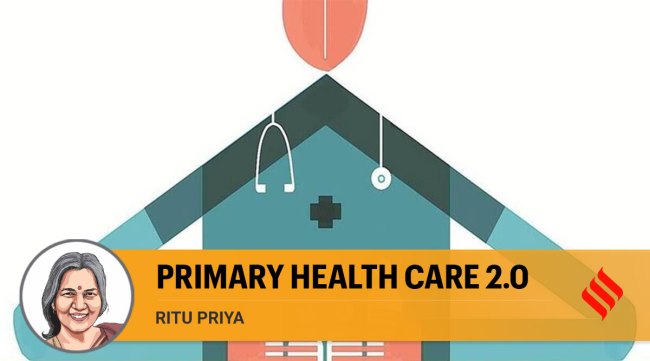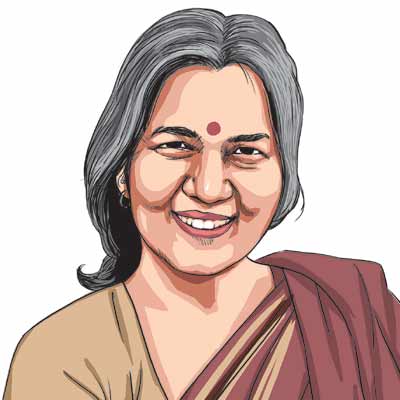Opinion India’s G20 presidency: An agenda for healthcare
India should use its presidency to draft a model policy focusing on primary healthcare that commits to a universal, affordable, inclusive and just healthcare system.
 The Covid-19 pandemic gave added urgency to pandemic preparedness and the Indonesian presidency in 2022 made it the major focus. The Indian presidency needs to advance these agendas.
The Covid-19 pandemic gave added urgency to pandemic preparedness and the Indonesian presidency in 2022 made it the major focus. The Indian presidency needs to advance these agendas. Health needs to be a central agenda for the G20 2023. It has been one of the priority areas for G20 deliberations since 2017, when the first meet of health ministers of G20 countries was organised by the German presidency. The G20 now has health finance in its financial stream and health systems development in the Sherpa stream. An annual G20 meeting of health ministers and a joint health and finance task force reflects the seriousness the subject has gained. The Berlin Declaration 2017 of the G20 health ministers provided a composite approach focusing on pandemic preparedness, health system strengthening and tackling antimicrobial resistance. The Covid-19 pandemic gave added urgency to pandemic preparedness and the Indonesian presidency in 2022 made it the major focus. The Indian presidency needs to advance these agendas.
Health systems strengthening has engaged the global community in thinking through the content and directions — what is to be strengthened, and how? The concept of Universal Health Coverage (UHC) was born in the 2000s to prevent catastrophic medical expenditures due to secondary and tertiary level hospital services by universalising health insurance coverage.The UHC has been the big global approach for health systems strengthening since 2010, also adopted in 2015 as the strategy for Sustainable Development Goal-3 on ensuring healthcare for all at all ages. However, the limited impact of this narrow strategy was soon evident, with expenditures on outdoor services becoming catastrophic for poor households and preventing access to necessary healthcare and medicines, while many unnecessary/irrational medical interventions were being undertaken.
So, in 2018, the Astana Conference organised by WHO and UNICEF put out a declaration stating that primary healthcare (PHC) is essential for fulfilling the UHC objectives. In 2019, the UN General Assembly adopted the combined UHC-PHC approach as a “political declaration”. With demonstration of the benefits of PHC services during the pandemic, the World Bank published a report in 2021, “Walking the Talk: Reimagining Primary Health Care After COVID-19”. The dominant hospital-centred medical system is becoming unaffordable even for the high-income countries, as apparent during the 2008 recession and subsequently. However, these global vision documents, while adding primary level care to UHC, are not addressing the nature of hospital systems themselves and their linkages.
A PHC-with-UHC approach means strengthening primary level care linked to non-medical preventive action (food security and safety, safe water and air, healthy workspaces, and so on) through whole-of-society and whole-of-government approaches, and extending the “PHC principles” to secondary and tertiary care services. This could be the most cost-effective systems design — the comprehensive game changer that global health care requires.
Building on the landmark Alma Ata declaration on PHC of 1978, what must be additionally included are the more recent initiatives that can be clustered together under five themes. First, making health central to development in all sectors: Health in all policies, one health (linking animal and human health for tackling antimicrobial resistance and zoonotic diseases), planetary health, pandemic preparedness. Second, health systems strengthening: Designing PHC-with-UHC for diverse contexts. Conceptualised as a continuum of care — from self-care in households to community services, to primary level para-medical services and first contact with a doctor, to all hospital services; with PHC principles — services provided as close to homes as possible, with appropriate technologies that are cost-effective, affordable and easily deliverable, promoting self-reliance. This can be a win-win system design for the users, medical personnel and those involved in the management of healthcare systems.
Third, appropriate technologies adopted as a norm — by strengthening health technology assessment, ethics of healthcare, equitable access to pharmaceutical products and vaccines, integrative health systems using plural knowledge systems rationally. Fourth, health and healthcare from the perspective of the marginalised: Gendered health care needs, Health care of indigenous peoples globally, occupational health, mental health and wellbeing, healthy ageing. Fifth, decolonisation and democratisation of health knowledge, with interests and perspectives of low-middle-income countries (LMICs), prevention and patient-centred healthcare.
India has several pioneering initiatives that can contribute to the PHC-with-UHC discussion: Lessons from the National Health Mission for strengthening public health delivery; the HIV-control programme’s successful involvement of affected persons/communities and a complex well-managed service structure; pluralism of health knowledge systems, each independently supported within the national health system; health personnel such as the ASHAs, mid-level health providers and wellness centres, traditional community healthcare providers with voluntary quality certification; research designed for validation of traditional systems; pharmaceutical and vaccines production capacity; developments in digital health; social insurance schemes and people’s hospital models by civil society.
What is required is the drafting of PHC-with-UHC (a PHC 2.0) with a broad global consensus and commitment to a more sustainable (i.e. cost-effective and affordable, inclusive and just, environment-sensitive in infrastructural and technology choices) and people-empowering health system. Pursuing such an agenda would involve much dialogue within countries, regions and globally. This process could be kick-started by working through the G20 Indian presidency year towards a call for organising a global conference on rethinking healthcare systems that moves a Declaration on Sustainable and Empowering Health Care for the 21st Century. The G20, with its membership of the G7 high income countries and the emerging LMICs, and its think-tank structures, is an appropriate platform to take up this long unfinished agenda.
The writer is Professor, Centre of Social Medicine and Community Health, JNU






